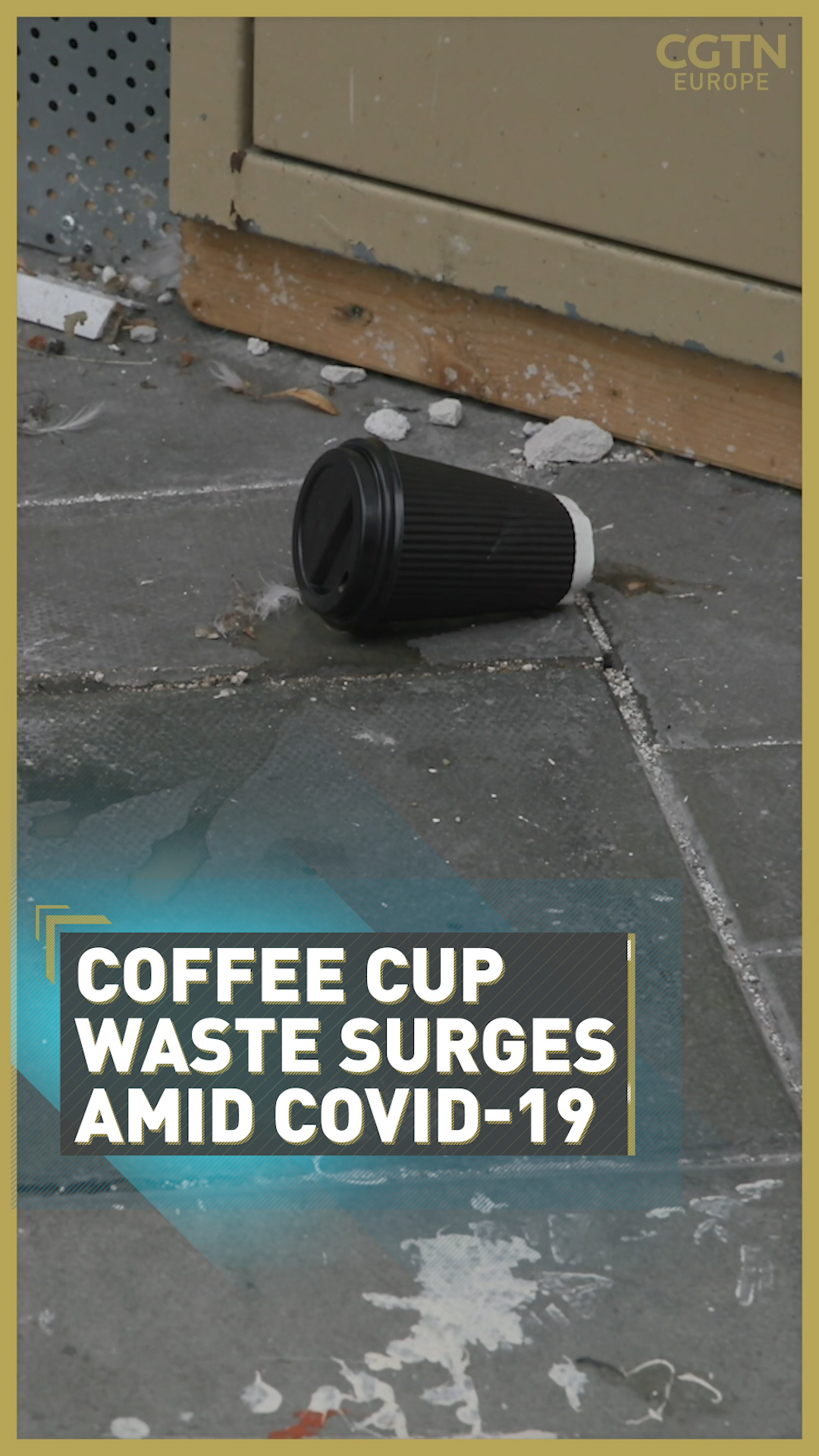
Services such as spa treatments and haircuts look very different today. /Niklas Halle'n/AFP
Services such as spa treatments and haircuts look very different today. /Niklas Halle'n/AFP
In the past few months the world has changed – but here at CGTN Europe, rather than tell you about how daily life has been altered across the continent, we want to hear from you about what the most helpful changes have been.
Below are some examples of action taken by shops and businesses.
Does one stand out to you?
Or can you think of helpful changes that we've missed?
Get in touch via Facebook, Instagram or email.

How to get your hair cut in 2020 (Pure Barbarism, London). /Patrick Atack/CGTN
How to get your hair cut in 2020 (Pure Barbarism, London). /Patrick Atack/CGTN
Extended return policy
Lighting shop houseof told CGTN Europe how it has changed its returns policy and how it now "quarantines" goods to make sure they're safe for customers.
"One of the main changes we've made both from a customer experience standpoint and a hygiene standpoint was extending our returns to 60 days to allow our customers to process their returns at a time that is convenient and safe. We will extend this if needed if we get any further announcements from the government. This has made a difference to our conversion rate and really puts our customers' minds at rest.
"We are also quarantining returns for 72 hours and while this impacts upon our refund processing, it's vital in keeping both our staff and customers safe."
Online learning for all
Online learning platform Coursera, which partners with universities around the world, gave access to hundreds of thousands of students who couldn't make it to class because of lockdowns.
The business told us: "On 12 March, Coursera began offering colleges and universities impacted by COVID-19 free access to its course catalog. The initial idea began with Duke University, when nearly 600 of its Chinese students and faculty in Kunshan were placed under quarantine.
"In just six weeks, 6,400 programs for 2,800 colleges and universities around the world were launched, helping 475,000 displaced students who enrolled in 1.1 million courses."
Recyclable single-use coffee cups
The Flour Pot Kitchen cafe in Brighton was one of many forced to stop serving customers inside and switch to takeaway cups. At first, reuseable cups were seen as dangerous in the pandemic – so the cafe turned to Cup Neutral, a disposable cup that isn't hard to recycle and won't harm the planet.
Bars and cafes across the continent have been affected. Do you have any pictures of innovative services or ways to protect both staff and customers? We'd love to see them.
01:43

Indirect payment options, or 'safe cash'
To reduce direct contact between customers and staff, many businesses have changed to card-only or app-only payments. While many businesses such as Uber or Deliveroo have operated in this way for some time, there could be wider issues if the world changes to a permanently "cashless" society.
On the other hand, cash is still being used by lots of people around the world – and according to the European Central Bank and the International Currency Association, cash use is actually on the rise.
One firm that provides cash via ATMs in the UK is NoteMachine. Its ATMs all now carry a sign telling customers its bills are "quarantined" for 72 hours before consumers touch them.
Online grocery shopping
French supermarket chain Carrefour has made several changes since the onset of the coronavirus in Europe. From being able to order groceries on Uber Eats, to in-store changes including hand-washing stations at entrances and screens in front of checkouts.
The company said: "As of 20 July, the [Uber Eats delivery] service is now available via 330 sales outlets and covers 91 major urban areas – that's 25 percent of the French population.
"More and more products are being added every week – from the 130 products available at launch, consumers can now choose from more than 250 essential everyday items, with the aim being to increase this to 500 by early September."
Training for working from home
- RADA Business is the commercial arm of the Royal Academy of Dramatic Art in the UK, and to help people who have been forced to communicate and work online, it launched a new service.
Called "Virtual Stage," the idea behind the program is to help business leaders and spokespeople get their message across via video conferencing – where the usual techniques and skills of in-person communication are lost or diminished.

Shops in the UK must keep customers apart. /Justin Tallis/AFP
Shops in the UK must keep customers apart. /Justin Tallis/AFP
Remember to tell CGTN what you think is the best change – and what we might have missed.
Get in touch via Facebook, Instagram or email.